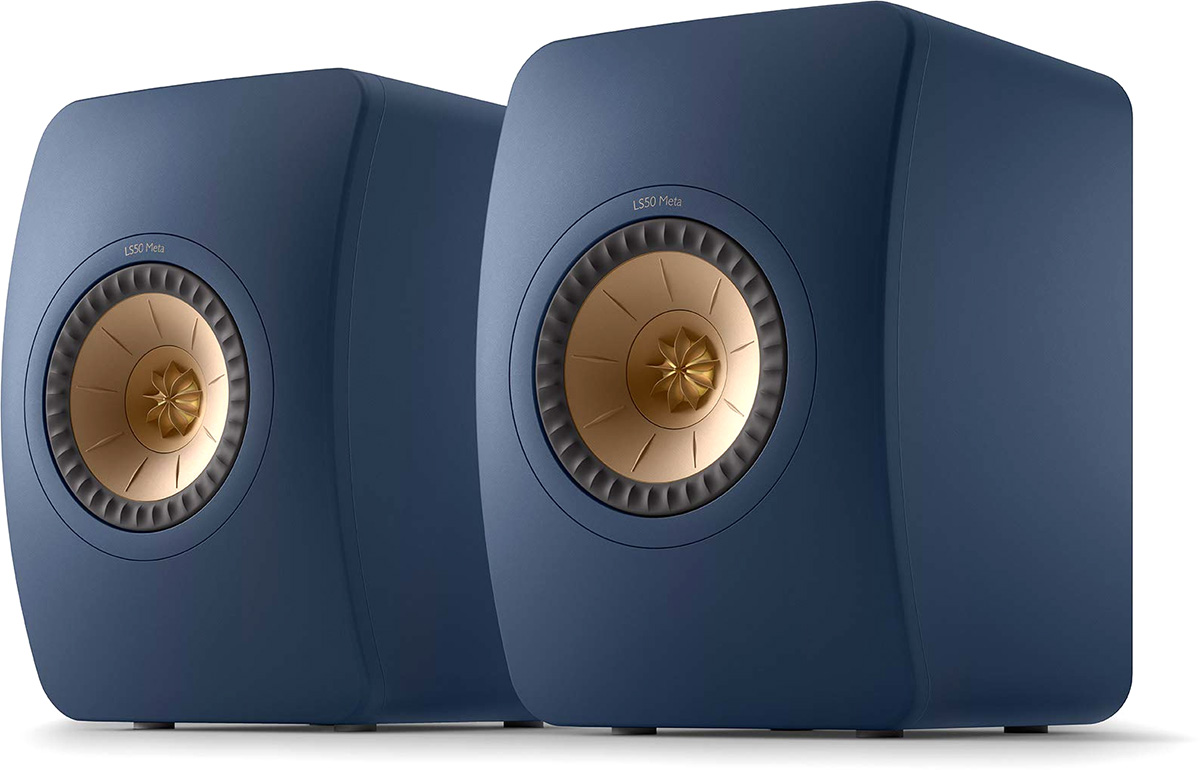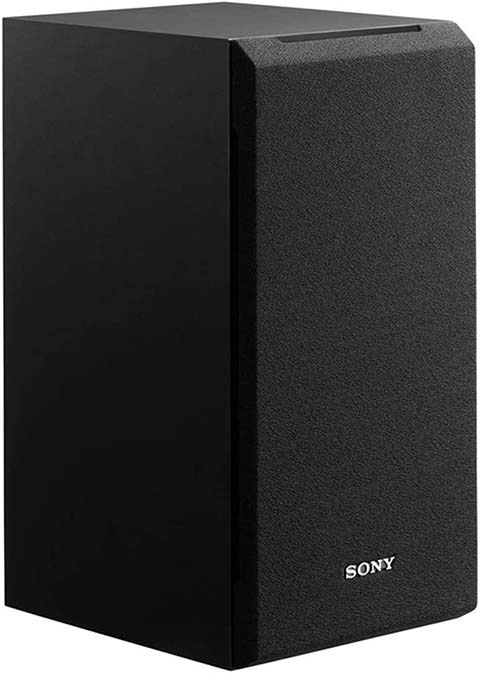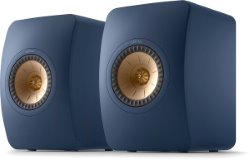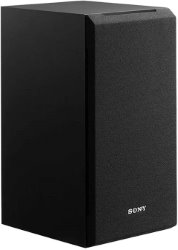KEF LS50 Meta vs. Sony SSCS5 3-Way Speakers
Note: the 3D models above approximate the external volume of the speakers, and may not accurately reflect their shape.
| KEF LS50 Meta Bookshelf Speakers | Sony SSCS5 3-Way Bookshelf Speakers |
| MSRP | |
| $1600 | $200 |
| Dimensions (H × W × D) | |
|
11.90” × 7.90” × 11.00” 302mm × 201mm × 279mm |
13.25” × 7.13” × 8.75” 337mm × 181mm × 222mm |
| Power Type | |
| Passive | Passive |
| Frequency Response | |
| 79-28,000 Hz | 53-50,000 Hz |
| ASR Score | |
| 4.6 | 4.5 |
| ASR Score w/Subwoofer | |
| 6.7 | 7.2 |
|
Amazon.com
|
Amazon.com
|
Key Takeaways
TLDR Summary: In the world of high-fidelity audio, the KEF LS50 Meta speakers represent a pinnacle of bookshelf design, boasting innovative Metamaterial Absorption Technology for pristine sound. Their coaxial drivers ensure a seamless audio image. In contrast, the Sony SSCS5 speakers offer remarkable value, with a 3-way design that includes a dedicated midrange driver. They deliver surprisingly good performance for their modest price. While the KEF LS50 Metas are a choice for audiophiles craving premium sound at a substantial cost, the Sony SSCS5s serve as an excellent entry point for those seeking quality on a budget.
Speaker Comparison
When it comes to bookshelf speakers, there's a wide spectrum of options that cater to both the casual listener and the dedicated audiophile. At one end of this spectrum sits the KEF LS50 Meta, a high-performance bookshelf speaker that has received accolades for its exemplary sound reproduction. On the other end, you have more accessible options like the Sony SSCS5 3-Way Bookshelf Speakers, which offer decent performance at a budget-friendly price point. Comparing these two reveals not just the differences in sound quality, but also the value proposition and target audience each product serves.
The KEF LS50 Meta: A Modern Audiophile's Dream
The KEF LS50 Meta, as a successor to the revered original LS50, brings to the table KEF's patented Uni-Q driver array, which positions the tweeter in the acoustic center of the bass/midrange cone. This cutting-edge design enables the LS50 Meta to produce a more detailed and integrated sound with a strikingly wide dispersion. The build quality of the LS50 Meta is exceptional, with a rigid, curved cabinet that helps eliminate unwanted vibrations and resonance, allowing for a purer and more precise audio experience. The Meta material used in these speakers isn’t just a marketing gimmick; it's a scientific advancement that reduces distortion and enhances the clarity of the sound.

 (at Amazon.com)
(at Amazon.com)Sony SSCS5: Budget-Friendly Performance
At the more affordable end, the Sony SSCS5 3-Way Bookshelf Speakers offer a different proposition. These speakers feature a three-way design with a dedicated woofer, tweeter, and super tweeter intended to cover a wide frequency range. While they lack the avant-garde technology found in the KEF LS50 Meta, the Sony SSCS5 does a remarkable job of delivering clear highs and respectable lows for their price point. The build quality is decent for a budget speaker, with a no-frills, straightforward design that focuses more on functionality than on flair. They are an excellent entry point for those dipping their toes into the audiophile world without breaking the bank.
Sound Quality: The Defining Factor
For sound quality, the KEF LS50 Meta is in a different league. It boasts an incredibly transparent and coherent sound, with a responsiveness that makes it exceptionally engaging to listen to. The speaker reveals the nuances in music that are often lost on less capable systems. Whether it’s the strum of a guitar or the subtleties in a vocalist's delivery, the LS50 Meta captures it with a lifelike realism that can make you forget you're listening to recorded music. In contrast, the Sony SSCS5, while offering good overall sound quality, doesn’t quite reach the same heights. The soundstage is narrower, and there's a slight coloration to the sound that, while pleasant, doesn’t convey the same level of detail.

 (at Amazon.com)
(at Amazon.com)Value and Versatility
Value is subjective and depends on what you prioritize. The KEF LS50 Meta is certainly an investment, but for those who crave that high-fidelity sound and have the means, it's a worthy expenditure. These speakers are not just about listening to music; they're about experiencing it in all its glory. On the other hand, the Sony SSCS5 provides great value for money, offering a level of quality that exceeds expectations for its price bracket. They are versatile enough to be paired with a range of electronics, making them suitable for a variety of users from casual listeners to budding audiophiles on a budget.
Compare to similar speakers
In terms of compatibility and ease of integration, the LS50 Meta and the SSCS5 cater to different setups. The LS50 Meta, with its 85dB sensitivity, requires a robust amplifier to truly shine. They're also more finicky about positioning and room acoustics to perform at their best. Conversely, the Sony SSCS5 is far more forgiving and easier to drive, making them a more plug-and-play option suitable for a variety of living spaces and less dependent on high-end amplification.
In conclusion, both the KEF LS50 Meta and Sony SSCS5 serve their intended audiences with distinction. The LS50 Meta offers a premium listening experience that is hard to match, appealing to those who consider audio quality paramount. Meanwhile, the Sony SSCS5 provides an affordable entry into high-quality sound, perfect for those beginning their audiophile journey. Your choice between the two ultimately comes down to personal priorities, be it budget constraints or the pursuit of sonic perfection.
- KEF LS50 Meta reviews and FAQs
- Sony SSCS5 3-Way Speakers reviews and FAQs
Check Current Prices: |
|
|
Amazon.com
|
Amazon.com
|
Affiliate Disclosure: As an Amazon Associate, we earn from qualifying purchases.

